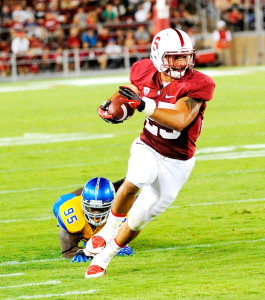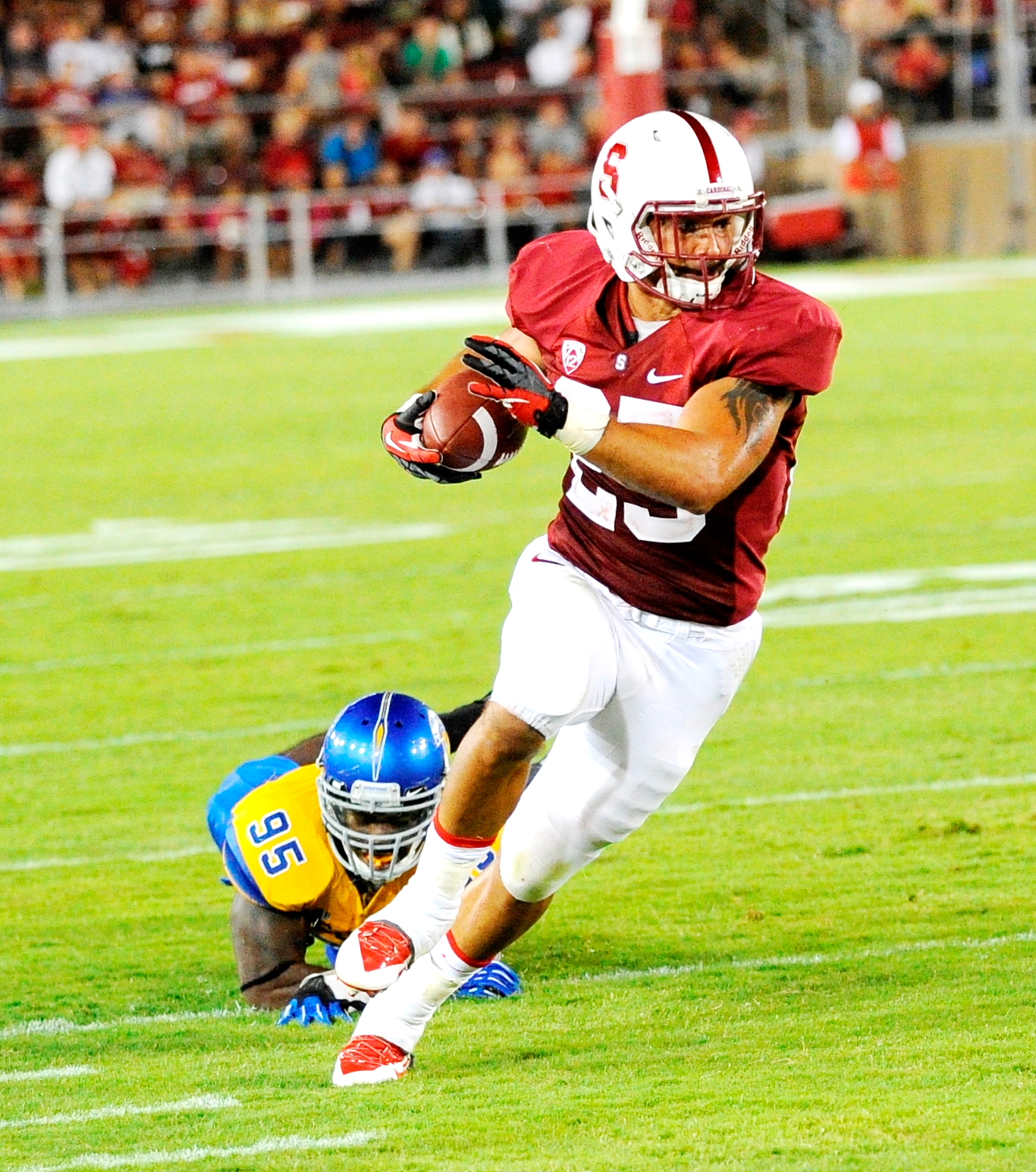For most Pac-12 schools, traveling 2,500 miles to the East Coast for an out-of-conference game could be an unwelcome change. The long journey between the two coasts, coupled with the three-hour difference in time zones, is often cited as a reason for subpar performances from normally strong teams in cross-country matchups.
Stanford, however, isn’t “most Pac-12 schools.”

While many Pac-12 teams tend to draw recruitments from their respective geographical areas, Stanford’s admissions standards and lack of geographical focus lead to the recruitment of numerous players from all around the country.
As a result, for many Cardinal players, including Virginia native quarterback Kevin Hogan, the trip to West Point to play at Army on Saturday is not a curse, but a blessing.
“It’s going to be nice to travel across [country],” Hogan said. “A lot of kids on our team are from the East Coast, so their families and friends will be able to travel and it’ll be a nice kind of change.”
Included among that group is one of Stanford’s offensive standouts from its season opener against San Jose State: junior wide receiver Devon Cajuste, a Long Island native. When Cajuste originally committed three years ago as one of David Shaw’s first recruits as head coach, he accepted Stanford’s offer based on the promise that he would not be switched to tight end.
That assurance ultimately paid off for not only Cajuste and Shaw, but also the Stanford offense, as Cajuste established himself as one of Hogan’s primary targets in Saturday’s season opener. When Cajuste travels back into familiar territory to play in his home state as a collegiate wide receiver, he will undoubtedly be looking to add to his 1 career touchdown.
Senior tailback Tyler Gaffney, on the other hand, is a San Diego native but should nonetheless be comfortable playing in New York after spending last year playing his home games as a baseball player in nearby State College in Pennsylvania. For Gaffney, however, physical hurdles may be more significant than mental hurdles come Saturday.
“My neck and shoulders are pretty sore,” Gaffney said. “It had been a while since I had really hit anybody… Yesterday was probably even worse than Sunday. I was reminded that football is a physical sport.”
Regardless of the location of the game, the Cardinal players will still have to prepare for an Army team on Saturday that will test them in a completely different manner than they are accustomed to seeing.
Shaw gave strong praise for the triple-option offense of the Black Knights, one of the premier rushing teams in the nation for the last several years.
“I respect what they do. I really do,” Shaw said. “They are determined to do what they do and do it as well as they can do it. And they challenge you to stop it. And if you stop it, they’re going to tweak it and do something slightly different. I mean, it’s the same respect that I give to anybody that’s really good at their offense.”
The Stanford offense, on the other hand, may be looking at a setback as fullback Ryan Hewitt, who was already limited in action against San Jose State due to injury, is still not at 100 percent. Shaw commented that Hewitt might not play against Army if the senior is sidelined from practice on Thursday morning, when the team hosts its last practice on campus before traveling to the East Coast later in the afternoon.
Sam Fisher contributed to this report.
Contact Do-Hyoung Park at dpark027 “at” stanford.edu and Sam Fisher at safisher “at” stanford.edu.
